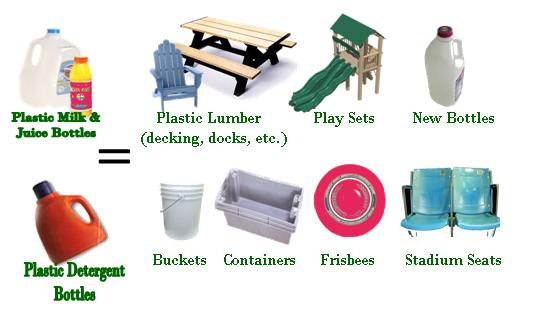What Do Your Recyclables Become?
The products listed below are only a few of the many products that can contain recycled material. It is important to remember that each municipal recycling program is different, so not all of these materials are necessarily accepted where you live. Feel free to contact us if you have any questions.
Click on Object to Find Out What it Becomes
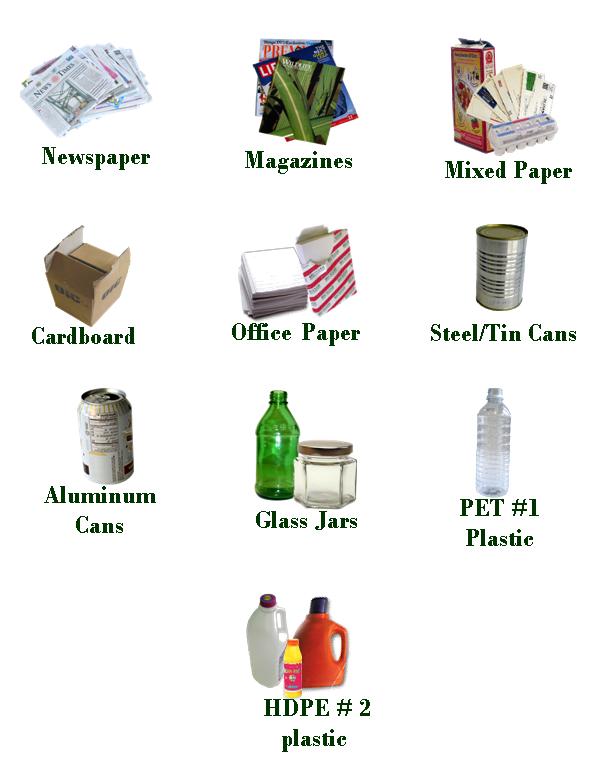
Products Made From Recycled Newspaper:
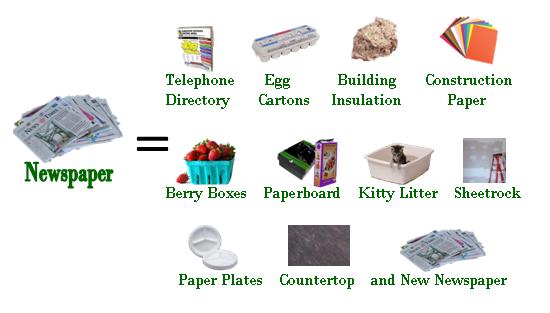
Many of the newspapers and magazines collected in Maine are recycled at the Huhtamaki Paper in Waterville/Fairfield in the manufacture of paper plates and associated paper goods.
Products Made From Recycled Magazines:
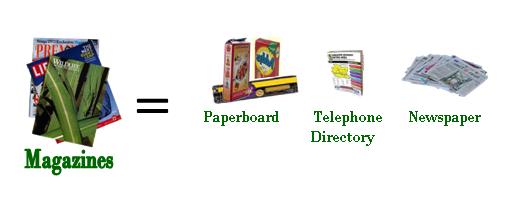
Recycled magazines are important in the recycling process as their high clay content is used to remove inks from paper before it is made into new paper products.
Products Made From Recycled Paperboard / Mixed Paper:
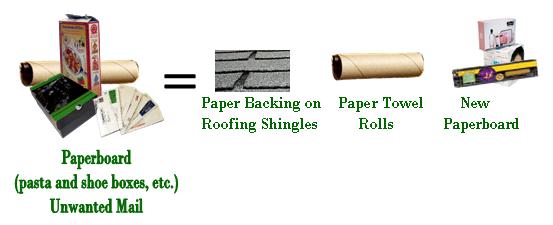
Many residential recycling programs in Maine collect several types of paper such as paperboard, magazines, or junk mail in one category. This is the lowest quality of recycled paper in the paper stream. The majority of residential mixed paper is paperboard and related products, a very thin gray board used to make containers such as cereal boxes, shoe boxes, pasta boxes and the like. Much of Maine’s paperboard and mixed residential paper is exported to Canada to be processed and made into new products.
Products Made From Recycled Corrugated Cardboard:
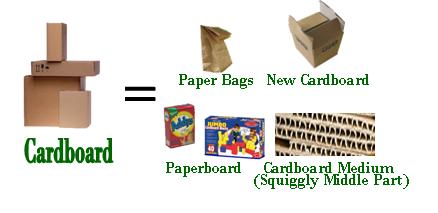
The majority of our recycled corrugated cardboard is shipped to Canada and overseas.
Products Made From Recycled Office Paper:
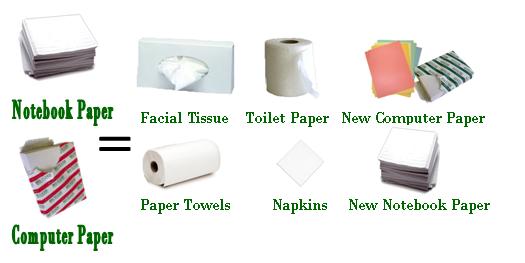
Products Made From Recycled Steel / Tin Cans:
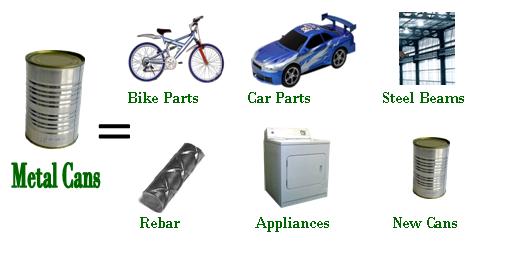
"Tin" cans are actually steel cans coated in a thin layer of tin. The tin and steel are separated during the recycling process. All steel contains recycled steel. Much of the steel is used on the east coast of the U.S. and in Canada.
Products Made From Recycled Aluminum Cans:
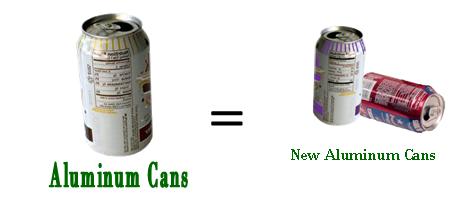
Aluminum can be recycled into a lot of different products such as tractor trailer and car bodies, however, aluminum cans usually become new aluminum cans. Recycling aluminum does not reduce the quality of the metal, so it can be recycled indefinitely. With a constant demand for aluminum cans, manufacturers can have an aluminum can back on store shelves as a new can in as little as 60 days of being recycled. Producing new cans from recycled aluminum saves 95% of the energy used to produce cans from ore, known as bauxite. Maine’s aluminum is shipped out of state and used primarily to make new cans.
Products Made From Recycled Glass:
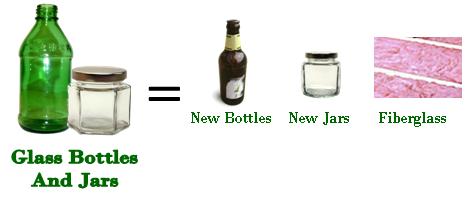
All types of used glass containers can be reused indefinitely to make new glass products. It is actually easier to manufacture new glass containers from recycled glass than from raw material.
Products Made From Recycled #1 Plastics:
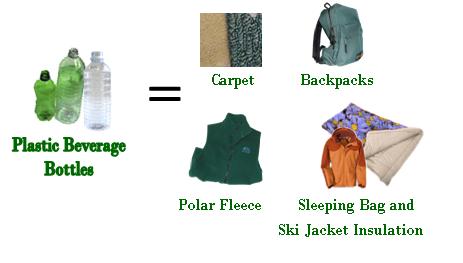
Plastics can often be confusing because there are so many different types of plastics on the market, and these different types cannot be mixed when they are recycled into new products. In addition, some products made from the same type of plastic cannot be recycled together because they are produced by different processes. For example, laundry detergent bottles and shopping bags may both be #2 plastic, but cannot be recycled together. The most commonly recycled plastics are #1 (soda bottles) and # 2 (milk jugs, laundry detergent bottles). Colored plastics are less versatile for recyclers and therefore may fetch a lower price in the recycling market. Most of these materials that are collected in Maine programs go to Massachusetts, Pennsylvania, Alabama, and overseas, where they are made into new products and containers.
Products Made From Recycled #2 Plastics:
